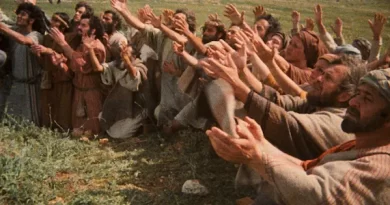Story of storing grain for times of famine – अकाल के समय के लिए अनाज भंडारण की कहानी
The story of storing grain for the time of famine is primarily found in the biblical account of Joseph in the Book of Genesis (Genesis 41).
Pharaoh, the ruler of Egypt, had troubling dreams that none of his advisors could interpret. In his first dream, he saw seven healthy, fat cows being devoured by seven thin, gaunt cows. In the second dream, he saw seven full, good ears of grain being swallowed by seven thin, withered ears of grain. Disturbed by these dreams, Pharaoh sought someone who could explain their meaning.
Joseph, who had been imprisoned in Egypt, was brought before Pharaoh after his ability to interpret dreams became known. Joseph explained that both dreams carried the same message: Egypt would experience seven years of great abundance, followed by seven years of severe famine. The seven fat cows and full ears of grain represented the years of plenty, while the seven thin cows and withered ears of grain represented the years of famine.
Joseph advised Pharaoh to appoint a wise and discerning man to oversee the collection and storage of grain during the seven years of abundance. This stored grain would then be used during the years of famine to sustain the people. Pharaoh, impressed by Joseph’s wisdom, appointed him as the second-in-command of Egypt, placing him in charge of this task.
Joseph implemented a plan to gather and store vast quantities of grain during the years of abundance. When the famine eventually struck, Egypt had enough food to feed its people and even sell to neighboring nations, who were also affected by the famine. This not only saved Egypt but also led to Joseph being reunited with his family when they came to Egypt seeking food.
This story is often seen as a lesson in foresight, planning, and reliance on divine guidance during times of crisis.
Story of storing grain for times of famine – अकाल के समय के लिए अनाज भंडारण की कहानी



